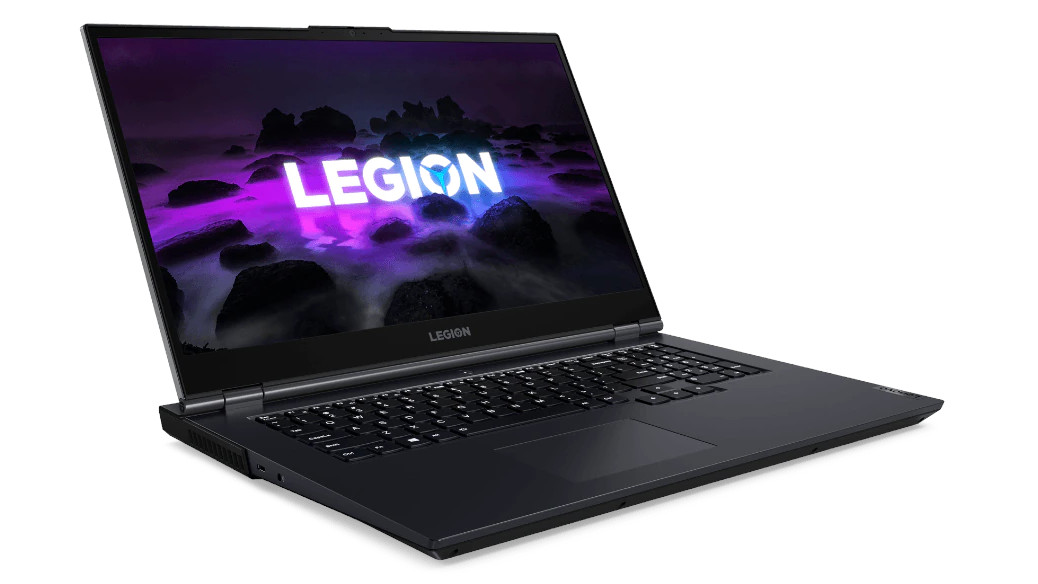Lenovo Legion gaming laptops hit by major BIOS fail
A vital BIOS update reportedly causes crashes, stuttering and more

Lenovo gaming laptop owners have run into trouble in some reported cases due to a freshly released BIOS update which went live in April.
Since it was rolled out a month ago, more and more folks have been updating to the BIOS version ‘GKCN53WW’, and there have been growing amounts of complaints on various online forums (including Lenovo’s own platform) around serious issues which have been encountered post-upgrade. Windows Latest, which spotted this, observes that the problems mostly affect Lenovo Legion gaming laptops.
The nastiness caused by the BIOS update in some cases includes the likes of Blue Screen of Death crashes with the error ‘DEVICE_POWER_STATE_FAILURE’ (or a driver power failure) or even boot failure, and freezing during game sessions, along with frame rates dropping badly at times.
One Reddit denizen posted: “I installed this on a Legion 7 16ACHg6 I’ve had for 7 months. After playing games for 10 min or so the laptop severely throttles for a couple of minutes. In terms of performance, it was impossible to ignore. Dropping from 75-140fps in FFXIV online to around 15-20fps.This throttling would repeat every 10 min or so.
“I reverted to GKCN49WW and the problem is gone. Pretty severe bug for a gaming laptop BIOS update pushed as ‘critical.’”
Lenovo does indeed rate this BIOS update as a critical upgrade to install, presumably because it contains fixes for some nasty BIOS vulnerabilities revealed by the laptop maker last month, along with a bunch of tweaking for power-related settings.
Analysis: Avoid the update, then? You could do, but that comes with its own risks
First off, we should note that there are folks on these various Reddit (and other) threads who have reported installing the GKCN53WW update without any problems. So, it might just be a relatively small percentage of Legion owners who have hit trouble with this BIOS update – we can’t know the exact numbers, of course, but the number of threads on Reddit suggest that this is not a rare occurrence, at least.
Sign up for breaking news, reviews, opinion, top tech deals, and more.
Therefore the best course of action could be to give the GKCN53WW update a swerve for now, arguably; but that said, those aforementioned BIOS vulnerabilities are not something you want to leave hanging around. However, you do not need GKCN53WW to fix those, as per Lenovo’s security advisory on this matter, those holes are resolved by updating to GKCN51WW (as well as GKCN53WW). So if you’re already on 51WW, you’re protected against these exploits.
The rub is that if you want to grab GKCN51WW now, you can’t anymore – we’re not sure why, but the only option for download is the new GKCN53WW, with its possible crashing and frame rate dropping issues. Hopefully Lenovo will fix this BIOS update soon enough, but we haven’t heard anything from the manufacturer yet – and meantime, you’re left with the tricky choice of whether to upgrade and chance the crashes, or stick and risk the vulnerabilities instead. (If you’re on GKCN51WW and managed to grab this version before it disappeared, we’d suggest very firmly that you stick with it for now).
If you do update to the latest BIOS and encounter problems, Windows Latest highlights that you can roll back to the previous BIOS version, which is now GKCN50WW: it can be downloaded directly as an EXE file here (but of course this does not have those vital security fixes).
To roll back the BIOS on your Lenovo laptop, just double click on the EXE file of the previous version you wish to install, and follow the instructions given by the wizard that pops up. You may have to enable the flashing of the BIOS to a previous version before you can roll it back, though, which is done in the Lenovo BIOS Setup screen – to get into that, see the instructions here.
Once in BIOS Setup, there’s an option which is related to rolling back the BIOS version, and you need to enable this (note that on some Lenovo machines, there can be a rollback prevention option which is enabled by default – and in this case, to revert to a previous BIOS version, you need to disable it).
Reverting the BIOS is, however, a process that can go wrong, so you do so at your own risk – and whatever you do, ensure that the laptop doesn’t power-down while applying a new BIOS (that’s how devices can get bricked).
All in all, it’s not a great situation for the less tech-savvy Lenovo laptop owners out there, who may not want to mess with BIOS rollbacks, but could feel forced to do so, if any post-update crashing issues are really bad. And indeed they may well feel it’s best to sit tight on an older BIOS to avoid this scenario – understandably – but that’s hardly ideal from a security perspective, either. So, hopefully Lenovo will be looking into fixing these reported problems as a matter of priority…
Darren is a freelancer writing news and features for TechRadar (and occasionally T3) across a broad range of computing topics including CPUs, GPUs, various other hardware, VPNs, antivirus and more. He has written about tech for the best part of three decades, and writes books in his spare time (his debut novel - 'I Know What You Did Last Supper' - was published by Hachette UK in 2013).